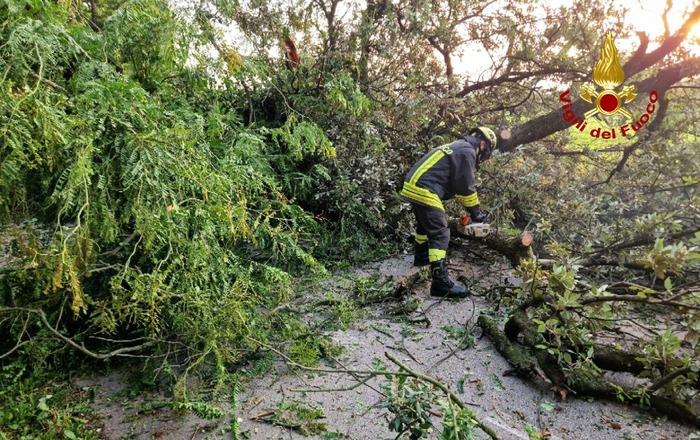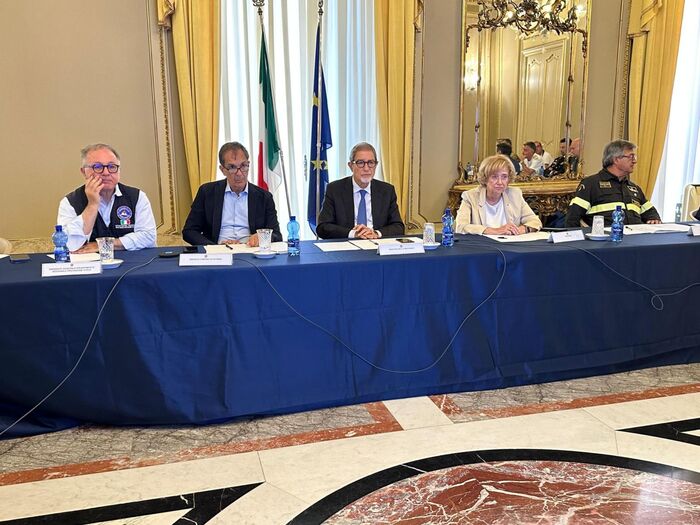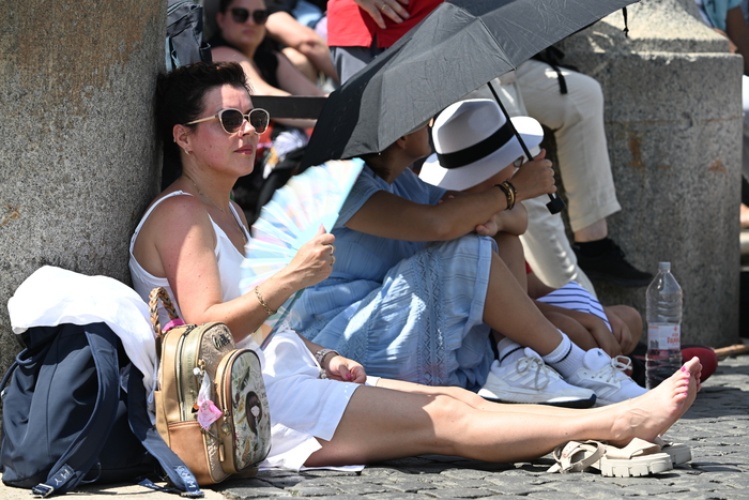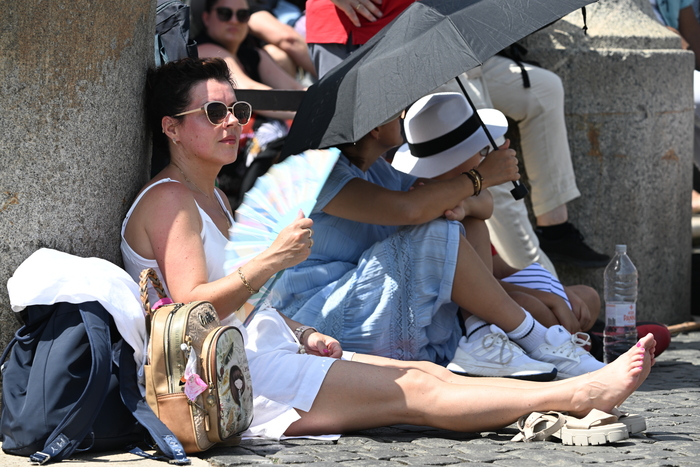According to Antonio Sanò of the website www.iLMeteo.it, the regions most at risk of extreme bad weather events are Lombardy, Trentino Alto Adige, Veneto and Friuli Venezia Giulia, according to the most recent forecasts.
Thunderstorms are forecast starting from Monday evening and especially on Tuesday and Wednesday due to the arrival of cool air at altitude from Northern Europe.
Over the rest of the country, the African anticyclone Charon will continue to ensure plenty of sun and heat in the first half of the week, with temperatures reaching 48 degrees Celsius in Puglia, Sardinia and Sicily.
The high pressure system is then expected to weaken as of Thursday, prompting a drop in temperature of up to 10-12 degrees.
A 50-year-old man from Tunisia on Monday became the fifth worker to die of heatwave-related causes over the last two weeks, according to trade union CGIL.
The farm labourer died after suffering heat stroke in a field at Montalto di Castro near Viterbo north of Rome.
As CGIL urged authorities to raise measures to protect workers from the effects of the tropical temperatures that have hit Italy, a protocol on heat risks and issues at Italian workplaces amid a series of heatwaves was drafted on Monday.
“A shared protocol for the adoption of measures for the containment of occupational risks from exposure to high temperatures in the workplace,” the 11-page draft, that addresses points ranging from the risk assessment and risk factors, related to age the presence of chronic diseases and tasks, to health surveillance and the reorganisation of shifts, said.

In Lissone (Monza) a woman was crushed to death by a gale-felled tree in Brianza while she was walking at around 3.50pm. (Photo: ANSA)
The employer – among other things – on the basis of the risks shall take action to “eliminate or reduce the direct exposure of workers to high temperatures or perceived high temperatures” by planning breaks or activities on cooler days or times.
Meanwhile, near Cagliaria on Sardinia, a 71-year-old man died of heat stroke in his car, while a 62-year-old man from Balsorano near L’Aquila died of a heart attack brought on by extreme heat while watching a street show at the hilltop village of Sora near Frosinone, between Rome and Naples, on Sunday night.
An on-the-spot medical team tried to revive the man, who collapsed amid the festive crowd and amid torrid temperatures that hit the Frosinone era Sunday.
He later died in hospital of a “cardiac crisis”, medical sources said.
A 31-year-old Australian woman was also saved by emergency stroke treatment after collapsing on a Puglia honeymoon last week.
The woman was staying at Polignano a Mare, near Bari, when she suddenly collapsed.
She was rushed to a stroke unit at the Policlinico di Bari Hospital where doctors saved her life after diagnosing a previously pathology that could have caused a lethal stroke.
She spent a week recovering in hospital where staff put on a party for her 31st birthday last Wednesday.
Elsewhere, a woman was crushed to death by a gale-felled tree in Brianza on Monday.
The 58-year-old died after being crushed by a tree, which had fallen due to bad weather, while she was walking in Lissone (Monza), at around 3.50pm.
Some passers-by immediately called for help, but when rescuers arrived on the scene, they could do nothing to save her. It took the fire brigade some time to recover her body.

“...tropicalisation has arrived in Italy, and we must take note of this,” Civil Protection Minister Nello Musumeci said during a meeting at the Catania prefecture to address the electricity emergency. (Photo: ANSA)
The health ministry said on Monday 16 major cities would remain on red heat alert through Tuesday.
They are Bari, Cagliari, Campobasso, Catania, Civitavecchia, Firenze, Frosinone, Latina, Massina, Napoli, Palermo, Perugia, Pescara, Reggio Calabria, Rieti and Roma.
On Wednesday the number is expected to drop to two, with only Bari and Catania remaining.
Civil Protection Minister Nello Musumeci said on Monday that climate change is not just a contingency and Italy must realise that it now also has a tropical climate.
The current power cuts and related water shortages endured by the Sicilian city of Catania as a result of the heatwave “do not concern only Catania, but the whole country”, he said, because “we have been talking about climate change for some time and we have been a little stubborn, convinced that it is merely a contingency”.
Instead, “tropicalisation has also arrived in Italy, and we must take note of this”, Musumeci said during a meeting at the Catania prefecture to address the electricity emergency.
“On the one hand we are paying for climate change, to which we should have started paying more attention a few years ago, and on the other for infrastructure that does not seem to be totally adequate for the new context,” he said.
Musumeci added that more than 500 technicians are at work in Catania and surrounding areas to resolve the problems, caused by the “inability of the underground cables to withstand the heat”.
ANSA











